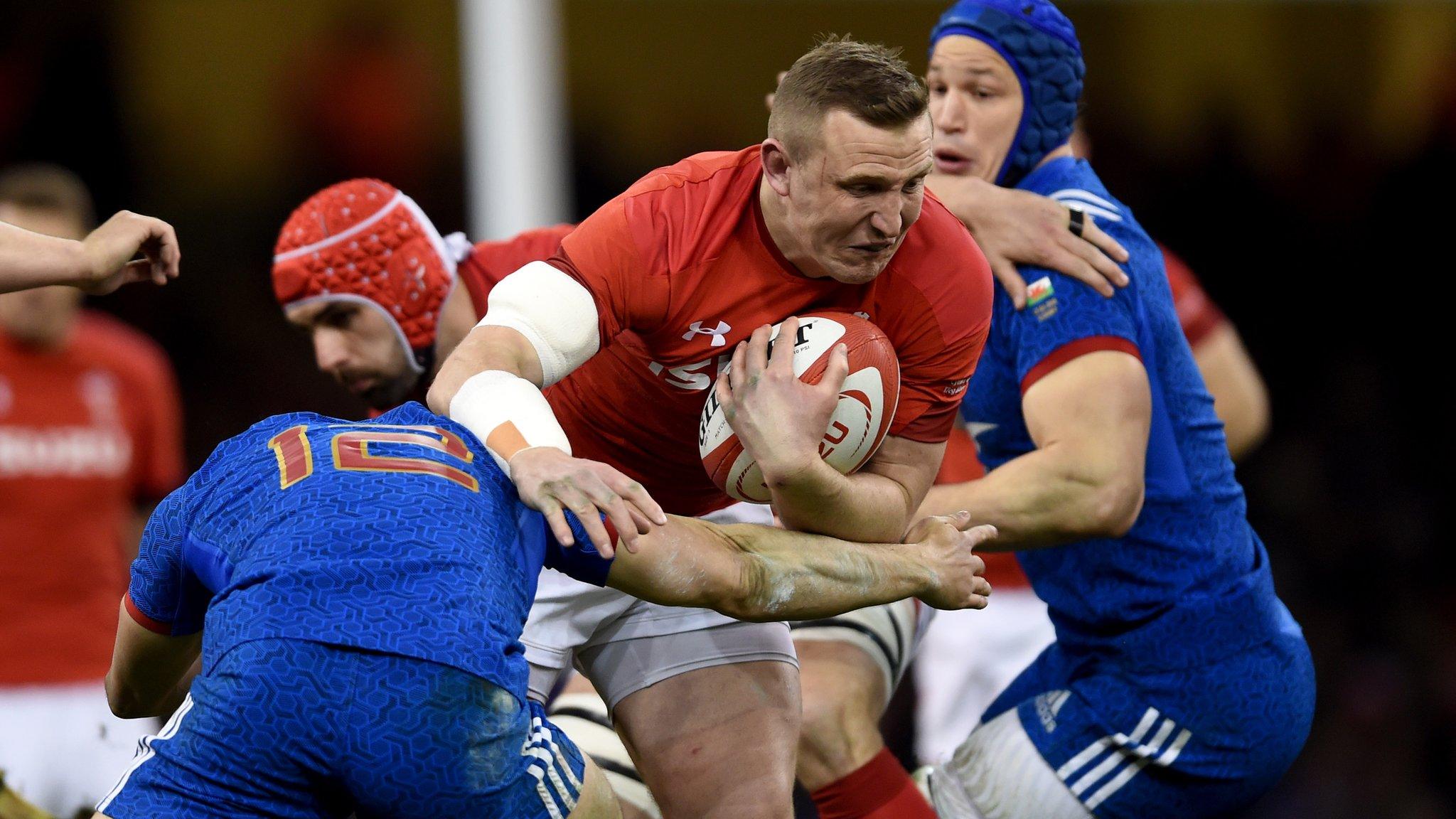Six Nations 2018: Wales' tale of pain and progress
- Published
Six Nations 2018: Wales 14-13 France highlights
So three home wins, two away defeats and a second place finish for Wales in the 2018 Six Nations.
It was a tournament of pain and progress for Warren Gatland's side as Ireland blazed a Grand Slam trail.
A thumping opening win over Scotland promised so much with a new attacking 'Welsh way' at last appearing to be realised.
Reality set in with successive defeats in Twickenham and Dublin before home wins over Italy and France.
But the manner of the disjointed performance against France also left unanswered questions over Wales' style of play.
So what have we really learned?
Ugly win to finish
Six Nations Shuffle: Celebrations for Ireland, aerial ping pong & a crocodile roll
When he was Wales boss, New Zealand coach Steve Hansen would preach that performance was more important than the result.
His New Zealand compatriot Gatland stated the exact opposite after Wales' ugly 14-13 win against France.
If you were looking for a flourishing finale to the Six Nations party, you would have been sorely disappointed by the poor show in Cardiff.
The occasion was always going to feel like after the Lord Mayor's show following Ireland's Grand Slam victory over England at Twickenham.
Wales produced their most uninspired performance of the campaign, struggling against a forceful yet limited French side that failed to capitalise on dominance of territory and possession.

Liam Williams scored the only try against France with Leigh Halfpenny adding three penalties in the 14-13 win
The second-half was agony, tortuous at times, but Wales held on thanks to a dogged rearguard effort, leaving defence coach Shaun Edwards as probably the happiest man on the Welsh coaching staff, although his boss was also satisfied.
"It was an ugly win, but sometimes you in your coaching career you take those results over the performance," said Gatland.
"There were too many turnovers and mistakes, but the boys showed great character in the second-half against a good French team."
Wales captain Alun Wyn Jones added: "It was a lot of pressure with the guys getting off the floor and doing the hard work.
"The biggest thing we take is the character."
Captain Colossus

Alun Wyn Jones has won 117 caps for Wales and nine more for the British and Irish Lions
Jones was at the heart of that dynamic defensive effort with the Lions lock topping the tackle charts with 16 alongside Josh Navidi.
The 32-year-old signed a new National Dual contract with Ospreys and Wales 24 hours before leading Wales to victory over France.
After being rested for the Italy win, Jones demonstrated how important he remains to Wales in his 126th Test match as Gatland guides him through the 2019 World Cup.
Is second best good enough?
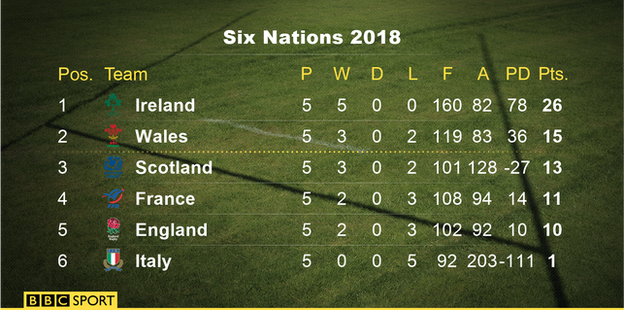
*Ireland are awarded three bonus points for winning the Grand Slam
Not for some. Former Wales and British and Irish Lions scrum-half Mike Phillips tweeted after the game: "How things have changed celebrating second!"
Gatland has been in charge of Wales since 2008. Wales have not won this tournament since 2013 with England and Ireland sharing the spoils over the past five years.
Before their 2013 triumph Wales also won in 2008 and 2012, so what progress is being made?
"We have felt we have done OK and a couple of calls have gone against us," said Gatland, whose side finished fifth in 2017.
"It is a tough competition to win or finish second, so we are pleased with where we are.
"The great thing about this tournament is how close it is and how tough it is to win.
"That is a huge positive for the Six Nations. We need to talk it up because it's been a competitive year with some good rugby.
"Congratulations to Ireland, they deserved the Grand Slam and have done brilliantly.
"They are setting the standard at the moment, something for us all to chase."
Warren Gatland congratulates Ireland but sympathises with Eddie Jones
Building depth
The most encouraging aspect for Wales is how they have built their player base with Gatland using 32 men during the tournament.
In the long term, that will be more important than finishing second.
Centre Hadleigh Parkes, scrum-half Gareth Davies and lock Cory Hill were the only three players to start all five matches. Not many would have predicted that at the beginning of February.
Josh Adams, Owen Watkin, Elliot Dee and James Davies had their first taste of the Six Nations while flankers Josh Navidi and Aaron Shingler have added to Wales' already burgeoning back-row resources, with Lions skipper Sam Warburton set to return next season.
"We are realistic where we are at the moment," said Gatland.
"We have exposed some players at the highest level and feel as we are leading into the 2019 World Cup with more depth than we had in 2015.
"The 2015 starting side was probably a bit stronger, but we didn't have the back-up. Now, in 12 months' time, we feel we will have."
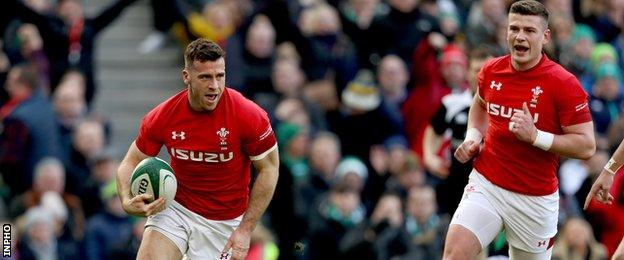
Gareth Davies scored two tries for Wales in the 2018 Six Nations including one against Ireland in Dublin
Developing a more expansive attacking style was one of the main aims of the campaign. Safe to say the jury remains out on this.
Bonus point wins over Scotland and Italy were offset by just four tries in three games against England, Ireland and France.
Three different outside-halves have been tried with Dan Biggar under pressure from Gareth Anscombe and Rhys Patchell, both considered more creative.
The style shown against Scotland under Patchell's watch was a far cry from the pragmatism of the victory over France when Biggar started.
Solving the number 10 conundrum over the next year will prove critical to future hopes of attacking adventure.
"From an attacking perspective we have scored some good tries and created space," said Gatland.
"Sometimes when you focus on certain aspects of your performance and improve, the things that you have been good in the past tend to take a back seat.
"We just need to get the balance right and be able to mix and match about how we want to play against certain sides."
What next?
A friendly in Washington DC against South Africa on 2 June is followed by two Tests in Argentina.
This summer tour is expected to be missing a lot of familiar faces, including captain Jones, and many of his fellow 2017 Lions tourists.
Then it will be just one more domestic campaign, one more autumn series and the 2019 Six Nations until Gatland's fond farewell at the 2019 World Cup in Japan.
- Published18 March 2018
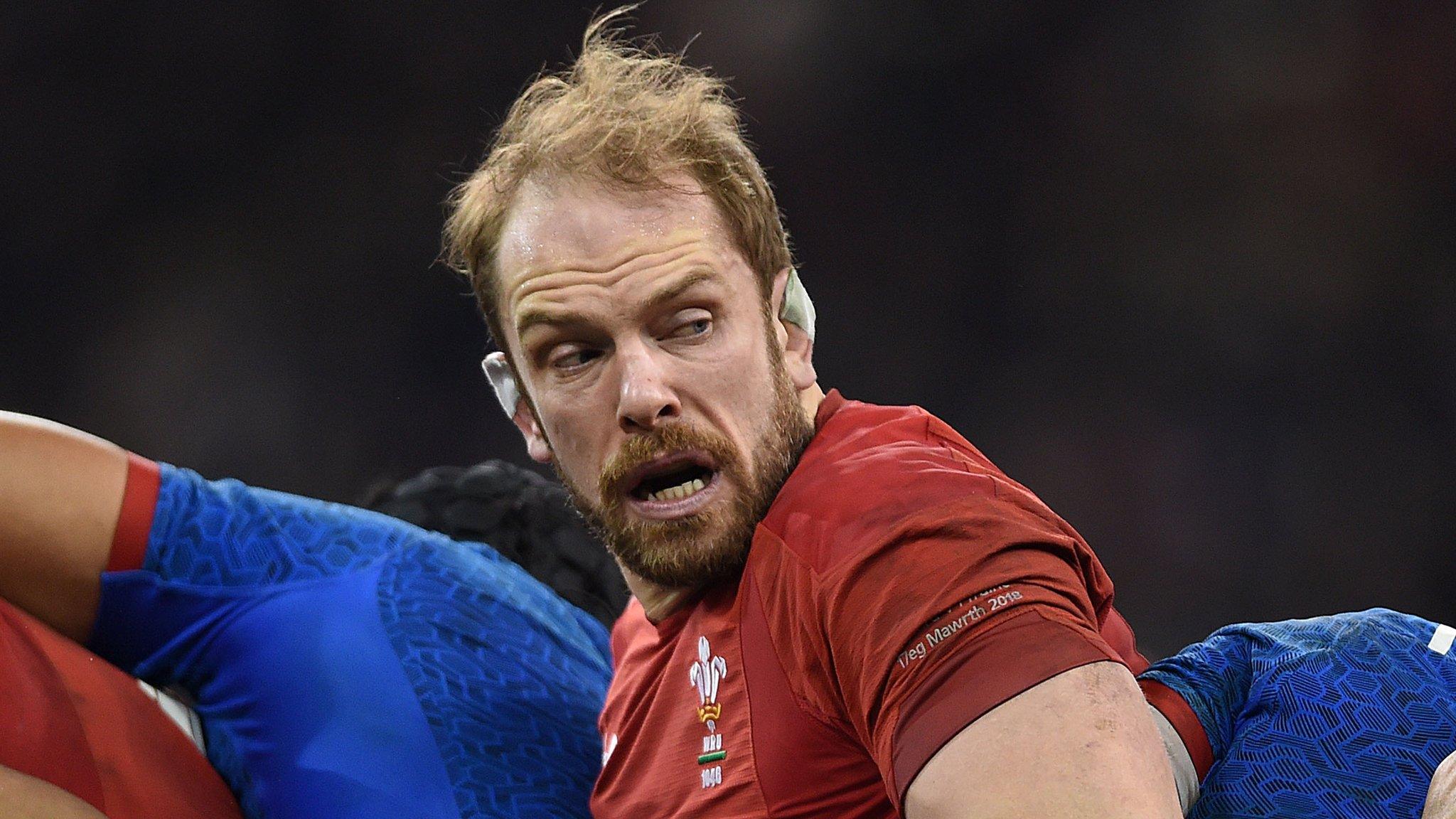
- Published18 March 2018
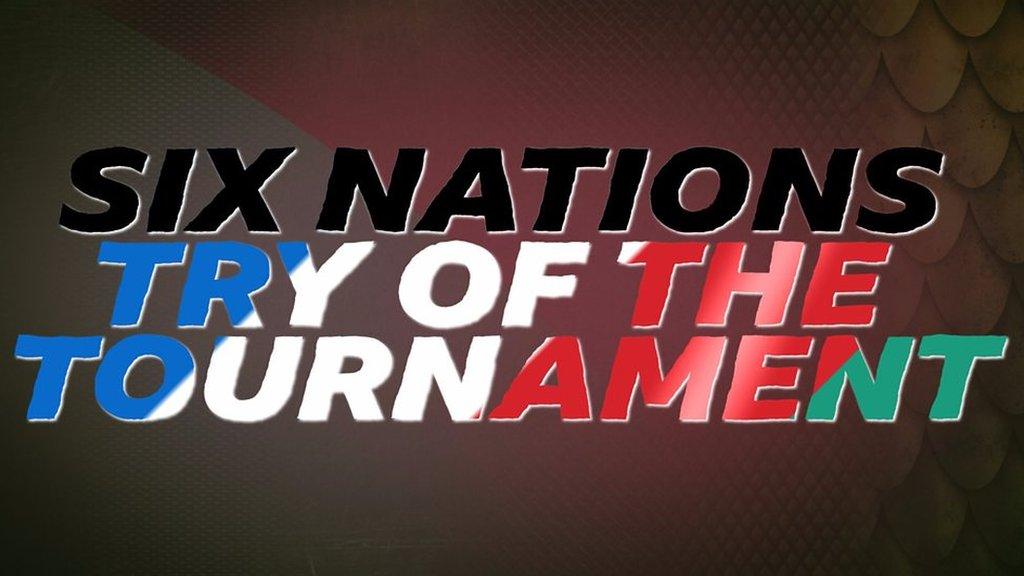
- Published18 March 2018
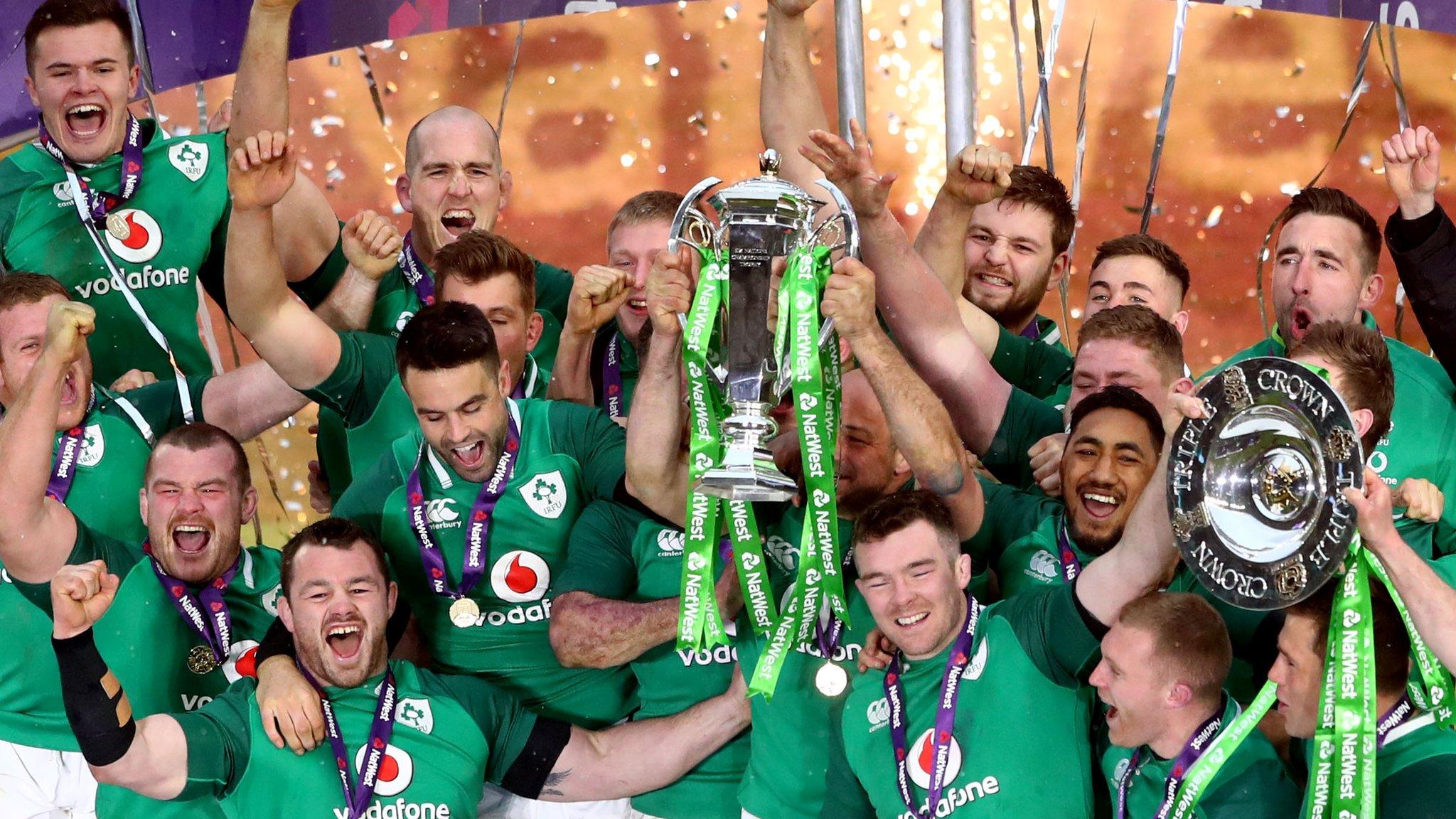
- Published18 March 2018
- Published17 March 2018
